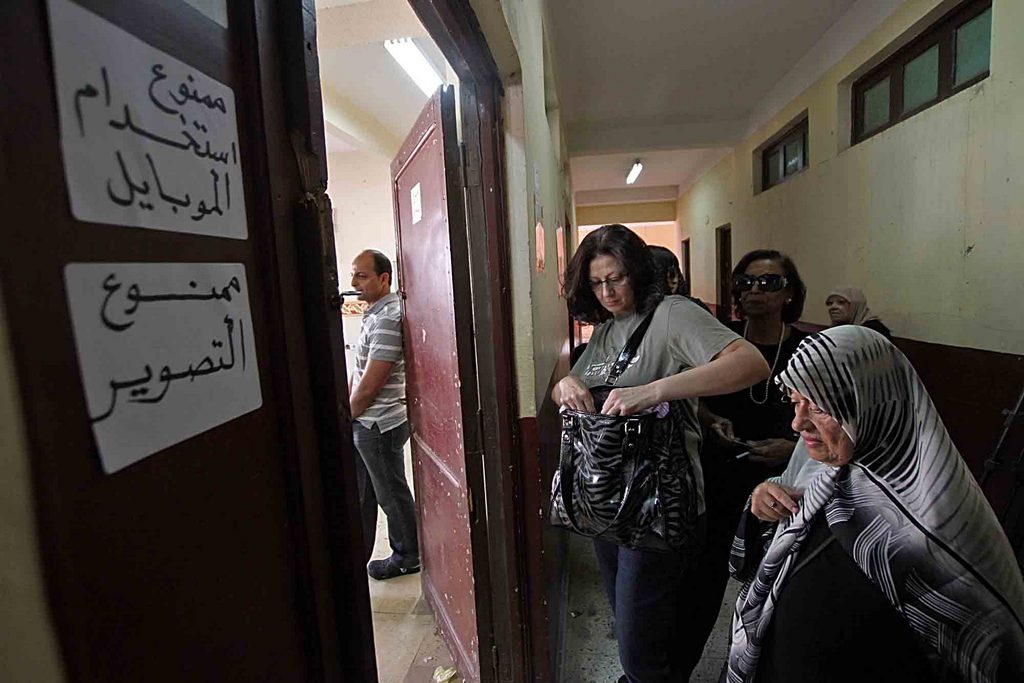By Andrew Hammond / Reuters
CAIRO: Egyptian protesters say they fear security forces will take revenge on them for continuing their campaign in central Cairo for President Hosni Mubarak’s ousting, despite official promises to the contrary.
Prime Minister Ahmed Shafiq said on Thursday there would be no “security pursuit” of thousands of activists who took over Tahrir Square four days into an uprising against poverty, corruption and political repression that began on Jan. 25.
But with the government having so far survived a revolt that has left what the United Nations says could be as many as 300 people dead, many say they do not believe Shafiq.
The government says it respects the right to protest — one of the gains of the uprising — but it wants to clear Tahrir for life to return to normal in one of the world’s most congested cities.
“If there is really to be no security pursuit, why don’t they cancel the emergency law? They make promises without action,” said Ehad Al-Hinawy, 46, a pharmacist from Zaqaziq.
Protesters have set up checkpoints and barricades to keep out pro-Mubarak supporters who assaulted them last week but they believe plainclothes intelligence officers have infiltrated the protest zone or lie in wait for them outside.
“State security people are registering us at checkpoints, looking at us in a certain way. It’s enough to see them to feel scared,” said Saad Shibahi, 27, a driver from Alexandria.
Egypt has been under emergency law since Mubarak came to power in 1981 following the assassination of Anwar Sadat. Under Mubarak’s watch the Interior Ministry expanded to more than 1 million people including informers, bureaucrats and members of various unpopular security services.
A meeting of opposition figures with Mubarak’s deputy Omar Suleiman on Sunday agreed that the emergency law would be lifted as part of a series of political reforms but gave no indication when. It also linked canceling it to the security situation.
Harassment Continues
Protesters say they have faced security harassment in recent days, though it appears linked to government accusations that “foreign infiltrators” are mobilizing the Tahrir protests.
One protester, called Karim, said that after leaving the square on Thursday he was detained overnight with around two dozen others and questioned by intelligence and military intelligence officers. He was picked up for breaking the curfew and held over photographs of the protests on his phone.
But he said the detention under army auspices was far more pleasant than treatment before the uprising by state security forces, who have yet to fully return to work.
Protester Mahmoud Turki said in a talk show on state television this week that “security pursuit” was a real fear.
“The people have concluded the resolution being sought here is one concerning security -— via dispersing them and pursuing them — not a political solution to their problems,” he said.
“Security pursuit” could involve preventing people obtaining jobs or harassment on university campuses. Tunisia, which saw a similar uprising last month, has said it will dissolve a security agency charged with monitoring students.
A protester called Isra said on the TV talk show — which had young pro-democracy activists as guests — that the movement had no faith in government promises of reform while Mubarak and his people remained in power.
“Neither the prime minister, vice president or president found it in themselves to call for public mourning of the dead,” she said. “No one can guarantee that if these people go home their demands will be met, that’s why they are still in Tahrir.”
(Editing by Michael Roddy)


